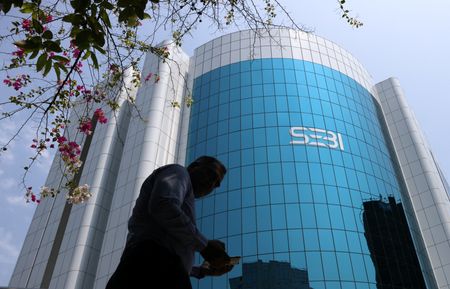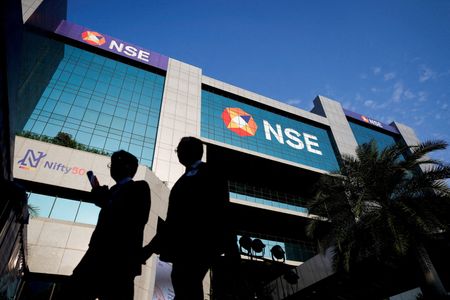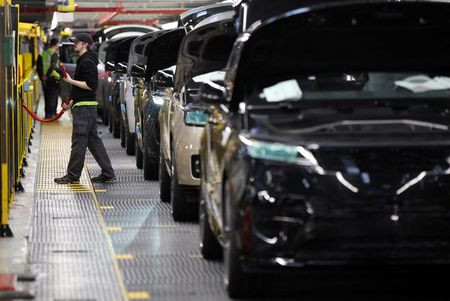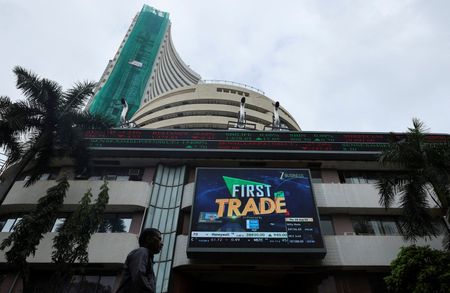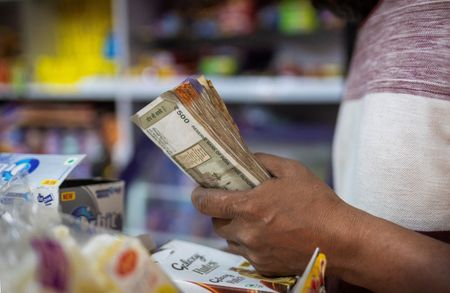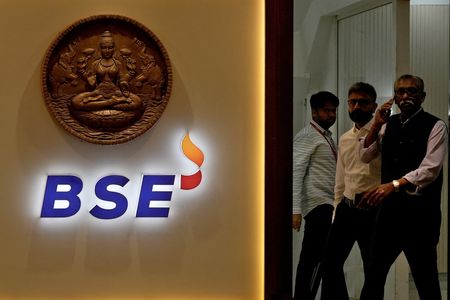By Nikunj Ohri and Sarita Chaganti Singh
NEW DELHI (Reuters) -India is leaning towards not creating legislation to regulate cryptocurrencies in the country and instead will maintain partial oversight, fearing that bringing the digital assets into its mainstream financial system could raise systemic risks, a government document shows.
The document, seen by Reuters, cites the Reserve Bank of India’s (RBI) view that, in practice, containing the risks of cryptocurrencies through regulation would be difficult.
Global acceptance of cryptocurrencies has improved since U.S. President Donald Trump took office and prices of bitcoin, the world’s largest crypto-asset by market capitalisation, have hit record highs.
The U.S. has also passed legislation permitting wider use of stablecoins, which are cryptocurrencies backed by fiat currencies making them less vulnerable to wild swings.
China continues to ban cryptocurrencies but is considering a Yuan-backed stablecoin, Reuters reported last month. Although, Japan and Australia are developing regulatory frameworks for such virtual assets, they maintain a cautious stance without actively promoting the sector.
Regulating cryptocurrencies in India would grant them “legitimacy”, and “may cause the sector to become systemic”, the government document, prepared this month, said.
In contrast, while an outright ban can tackle the “alarming” risks from largely speculative crypto assets, it would not be able to tackle peer-to-peer transfers or trades on decentralised exchanges, it added.
The Indian government’s formal views have not been previously reported.
India’s federal finance ministry and the RBI did not immediately respond to Reuters request for comment.
In 2021, the government prepared a bill to ban private cryptocurrencies, but didn’t go ahead with the legislation.
During its G20 presidency in 2023, India had called for a global framework to regulate such assets. In 2024, the government planned to issue a discussion paper on its crypto stance but deferred it, saying it would review the issue after the U.S. formalised the use of cryptocurrencies.
At present, global crypto exchanges can operate in India after registering locally with a government agency tasked with due diligence to check money laundering risks. Punitive taxes are imposed on gains from cryptocurrencies.
But the central bank has repeatedly cautioned against the risks in dealing with them, leading to a near freeze in trading between the country’s formal financial system and cryptocurrencies.
Indians have investments worth $4.5 billion into various cryptocurrencies, and use of such assets is currently neither significant nor a systemic risk to financial stability, the document said.
The current limited regulatory clarity has helped contain the risks of cryptocurrencies on the regulated financial system, it said. The present tax and other laws act as a deterrent towards speculative trading in cryptocurrencies, and penalise fraud and illegal activities, it added.
As regulatory approach towards cryptocurrencies varies globally, “charting a clear way forward or identifying a uniform policy approach is not straightforward,” the document said.
STABLECOINS
Trump on July 18 signed the GENIUS Act into law, setting federal rules and guidelines for cryptocurrency tokens pegged to the U.S. dollar known as stablecoins.
The document said the adoption by the U.S. of dollar-backed stablecoins and promoting their use as payment instruments will impact both advanced and emerging economies.
This would require “close examination” by the government as most stablecoins in circulation globally are pegged to the U.S. dollar, it said.
Stablecoins target price stability but can fluctuate due to market shocks or liquidity constraints impacting financial markets, the document said.
Widespread use of stablecoins could fragment national payment systems such as fast inter-bank transfers, and weaken the country’s digital payments system, Unified Payment Interface (UPI), it said.
($1 = 88.1660 Indian rupees)
(Reporting by Nikunj Ohri and Sarita Chaganti Singh in New Delhi; Additional reporting by Jaspreet Kalra in Mumbai; Editing by Shri Navaratnam)



